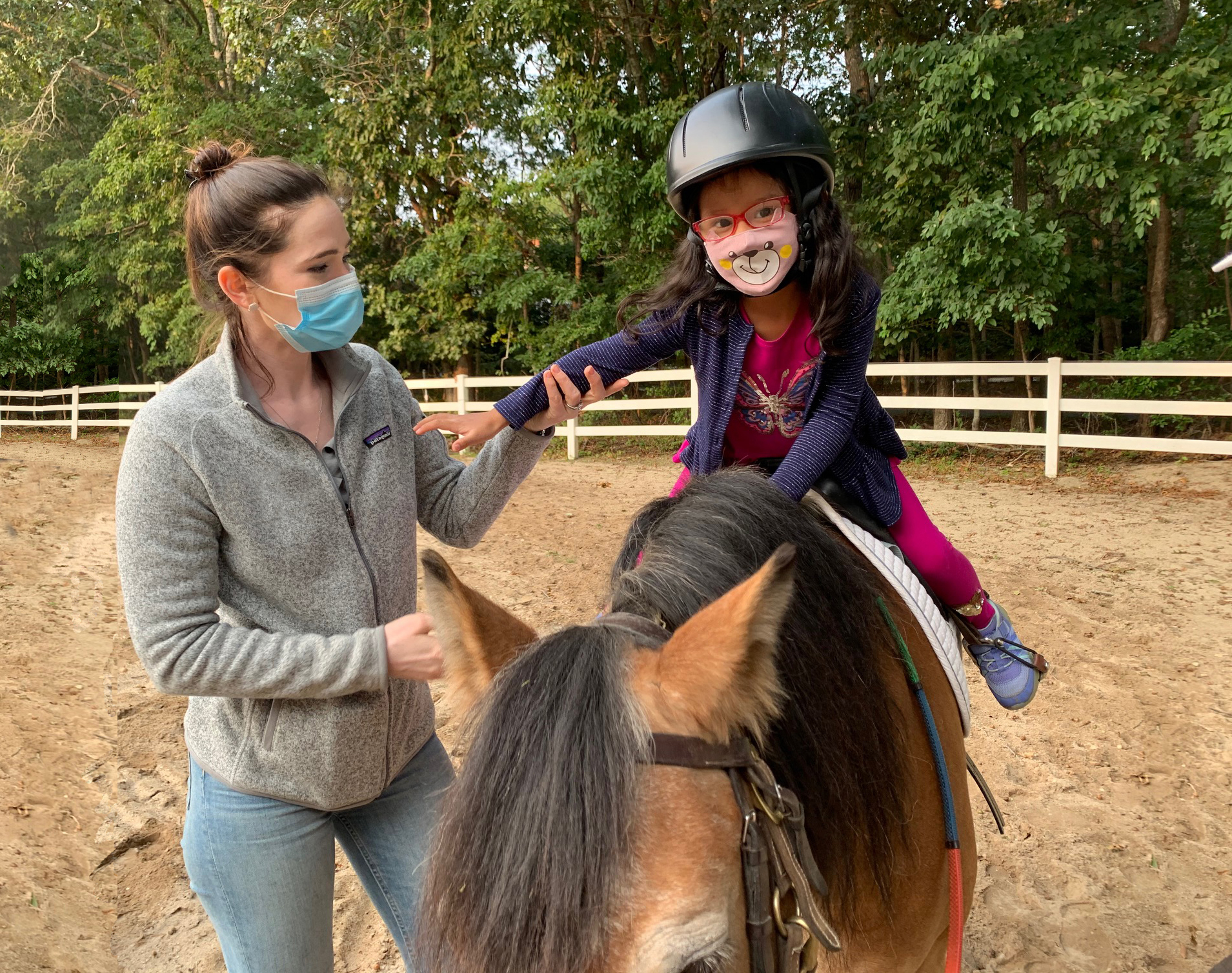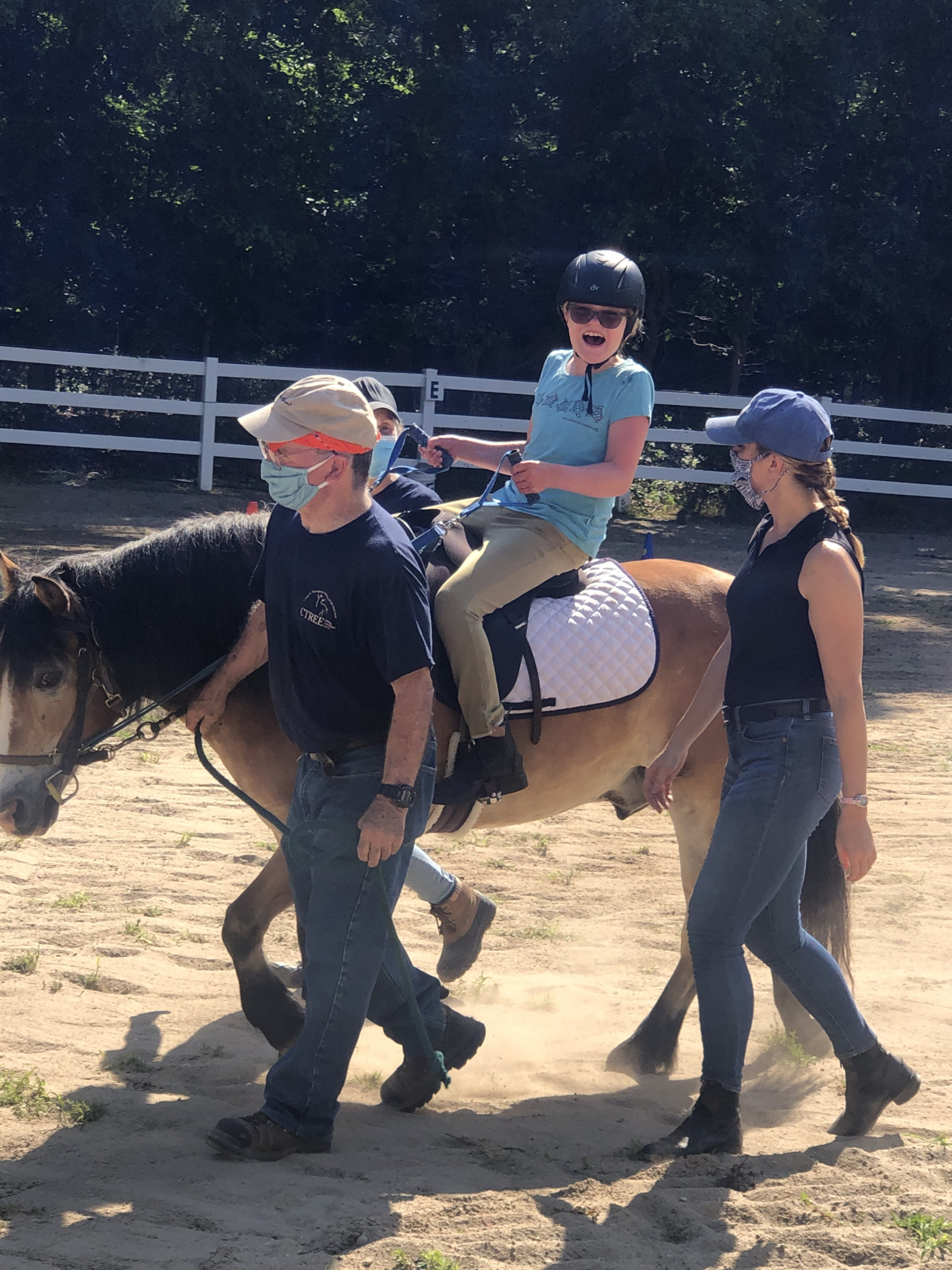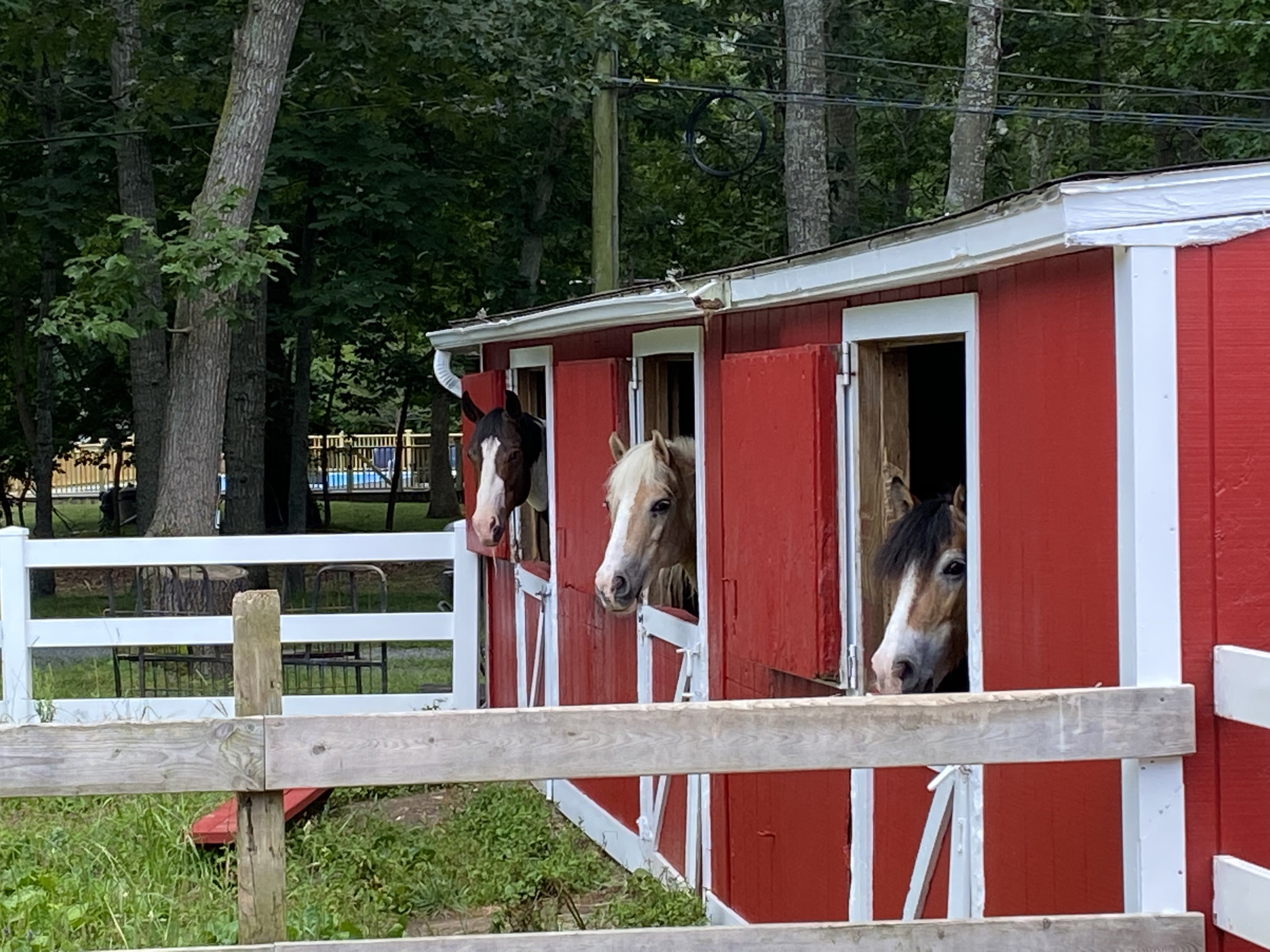CTREE on Track for Transformative Summer with Your Support

Founded in 2009, the Center for Therapeutic Riding of the East End (CTREE) has been utilizing horse riding lessons and equine assisted activities to improve the lives of people ages 3 into their 80s who live with emotional, cognitive and physical disabilities. As they ramp up for an incredible summer with new programs in a new location, they’re in need of the East End community’s support to maximize their transformative capabilities.
CTREE was founded on the belief that meaningful interaction with horses provides humans with five vital therapeutic benefits—physical, sensorial, emotional, cognitive and social. “A horse’s gait at a walk provides input into a human vestibular system that simulates walking as if the human is walking,” CTREE managing director Karen T. Bocksel explains. “People with MS (multiple sclerosis) or CP (cerebral palsy), people who are paraplegic and able to ride get the opportunity to ‘walk’ with a nice stride, since when they’re walking, their gaits are compromised…. The input into the human is that they’re walking, getting all of that exercise and all of those endorphins and good feelings, while they’re legs don’t need to be doing it. For a little child who might be hypotonic with very loose muscles, it provides huge core strengthening!
“That’s just the physical aspect of it,” she continues. “For learning disabilities—kids with autism, kids with cognitive challenges— the horse becomes a partner. So their partner in their sport is their horse, who is totally accepting of whatever is happening and whatever they’re working on. Horses don’t judge. They are able to use the motivation for the horse to get from point A to point B, to trot or to walk a circle, and it gets the kids in the moment and doing something that has instant gratification.”

Last year, CTREE introduced Horses Heal which focuses on the improving the emotional wellbeing of frontline workers, healthcare workers and first responders by giving them a quiet respite where they can watch, groom and confide in an equine friend. The program will return later this spring.
“I’ve been doing this for 30 years, it’s been an industry unto itself for over 50 years, and therapists back in Germany, where it first started, have been doing it with psychiatric patients for even longer than that. It’s amazing that the research part is so new, maybe 15 to 20 years old at the most,” Bocksel says. “We all knew it worked, but we had no proof. Now there is proof that it works for all of these areas!”
During the pandemic, CTREE were able to secure a PPP (Paycheck Protection Program) loan to keep their staff employed, actively caring for the horses and engaged in numerous educational Zoom meetings. “The time was spent very wisely; none of us were bored,” Bocksel notes, adding that, with the help of some very creative volunteers, CTREE also sent photos of the horses and letters “written by” the horses to each of the program’s young riders.
In summer 2020, CTREE moved from its long-term home at Wölffer Estate Vineyard to Twin Oaks Farm, also in Sagaponack. The move has allowed CTREE, the only tenant of the farm, to expand its schedule beyond what was previously possible at its prior shared space.
“Being at the new center, we’re able to now offer daytime lessons for people. When we were at Wölffer, we were only able to do evenings when Wölffer was closed,” Bocksel says. “Once we get through COVID, are able to get back up to our old capacity and have more of a system, we will be adding a camp for children.”
The weeklong camps are expected to take place four mornings out of the week with lessons in riding, horsemanship and equine care taught under the guidance of a therapeutic riding instructor and counselor. The inclusionary camps will allow the family members of riders with special needs to join, as well, and will likely be limited to four riders, each paired with a volunteer. There will also be an optional Friday morning class that serves as an introduction to horse camp.
“I did [an inclusionary camp] when I worked in New Jersey, and it was wonderfully successful because a lot of regular camps don’t take children with special needs, and special needs camps don’t take children with no special needs,” Bocksel says. “This camp will be a nice segway into seeing how it goes, and we’ll see down the road if we can offer some more things during the school year for siblings.”

With so many new and returning programs in the coming months, CTREE is asking for the community’s support in three ways—donations, volunteers and horses. In addition to the donation page on the CTREE website (ctreeny.org/donate), charitable souls can make donations at the upcoming open house on May 21 or at the special fundraiser on June 4.
Volunteers ages 14 and up are needed for upcoming camps, programs and events, and junior volunteers are required for the camps, as well. Those who wish to lead the horses, must have prior equine experience, but side-walkers, barn helpers and other volunteers will receive training, making this an excellent way to earn community service.
With Twin Oaks Farm offering the stable space for up to six horses, CTREE is on the lookout for three free-lease horses—teenaged or older, no larger than 16 hands and with great personalities—who will return to their owners upon retirement. “It’s very hard to retire horses in this area, so we prefer not to have to do that ourselves,” Bocksel explains. “Due to COVID, there seems to be an incredible shortage of people donating horses to therapeutic riding programs. In this whole Northeast area, there is a shortage of that, so a lot of the programs are having the same problem we’re having with getting more horses.”
To learn more about CTREE and the ways you can support this life-changing organization, visit ctreeny.org.



